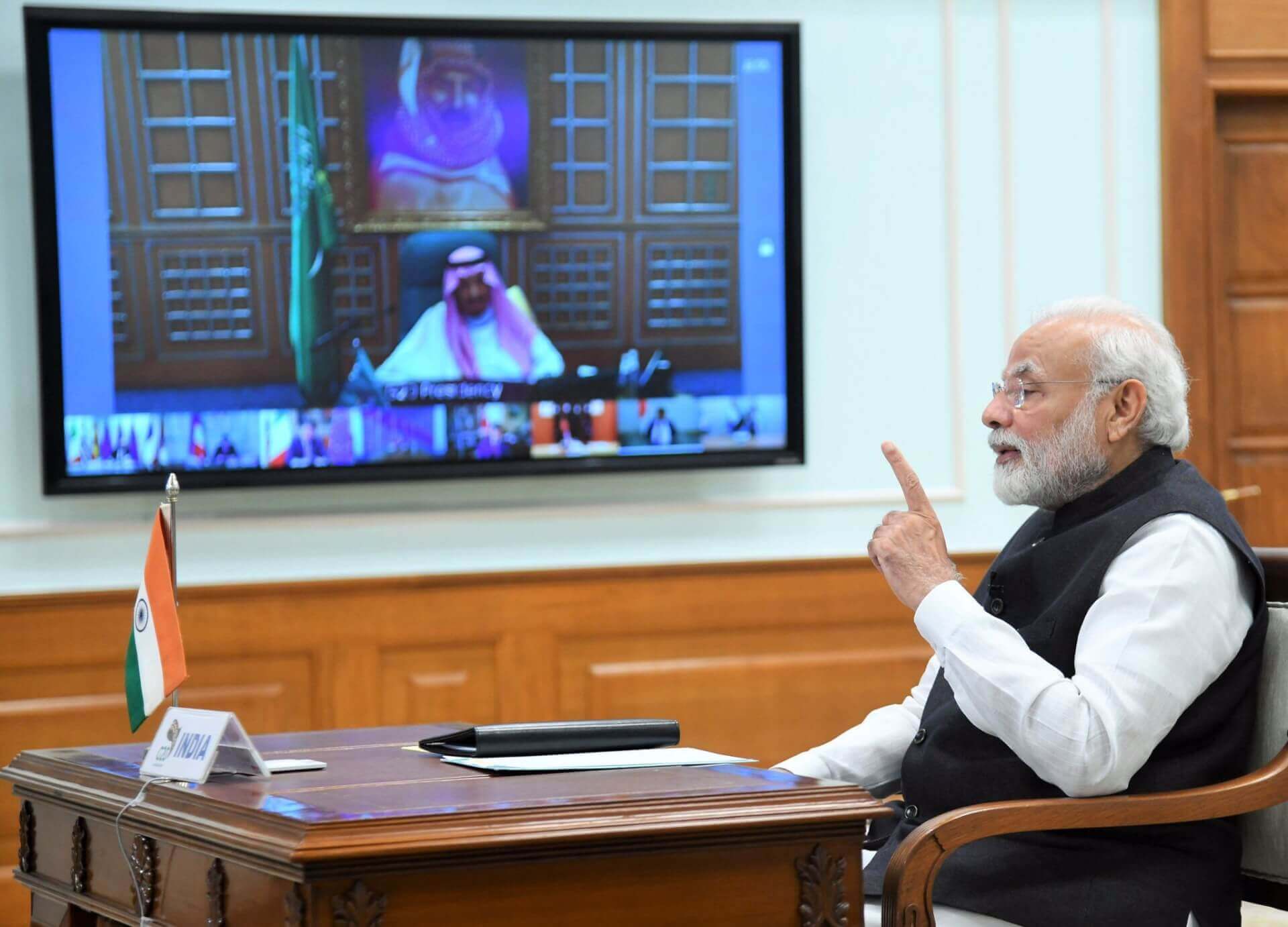For the first time, states, international organizations, and world leaders came together to attend an Extraordinary G20 Leaders’ Summit in light of the novel coronavirus outbreak. The Summit, held via video conference, was led by Saudi King Salman bin Abdulaziz Al Saud, and attended by the G20 member states, UAE, the International Monetary Fund, the World Bank Group, and the United Nations, among other observers.
In his remarks at the emergency summit, Indian Prime Minister Narendra Modi noted the alarming economic and social costs of the pandemic, bringing attention to the massive devastation caused by the virus. He pointed out that although the G20 countries share 80% of the world’s GDP and 60% of its population, 90% of the COVID-19 cases and 88% deaths caused by it were in these very countries. He called for the ushering in of a new era of globalization that puts the collective wellbeing of humans and the shared interests of humanity at its centre. Modi also stressed on the need for major reform of the World Health Organization (WHO) and other intergovernmental organizations to make them better positioned to reduce hardships during pandemics, especially for the economically weaker sections of societies.
The world leaders came together to reiterate the importance of global cooperation, interconnectedness, and shared vulnerabilities during these trying times. In their official joint statement after the summit, the G20 members announced that they are strongly committed to forming a united front against the virus, which knows no borders. They have agreed to inject over US $5 trillion into the global economy as the first step of a targeted fiscal policy that is aimed at stabilizing economic measures and guaranteeing schemes to counteract the economic, social, and financial uncertainties caused due to the pandemic. The states have also committed to strengthen the WHO’s mandate, and to provide immediate resources to the body’s Strategic Preparedness and COVID-19 Solidarity Response Fund, the Gavi Vaccine Alliance, as well as the Coalition for Epidemic Preparedness and Innovation.
Although the summit was attended by the US and China, it was devoid of any controversial discussion on the origin of the virus. Rather, all countries committed to resolving global supply chain disruptions to ensure the flow of vital medical goods and services and critical agricultural products across borders.
Chinese President Xi Jinping said, “China received help and support from a lot of members of the global community at the most difficult time of its battle against the COVID-19 outbreak. Such expressions of friendship will always be remembered and cherished by the Chinese people” and supported the WHO and its efforts to foster comprehensive international cooperation to battle the infectious disease.
Image Source: Connected to India
World Leaders Commit to Injecting $5 Trillion to Combat COVID-19 in Virtual G20 Meet
March 27, 2020

